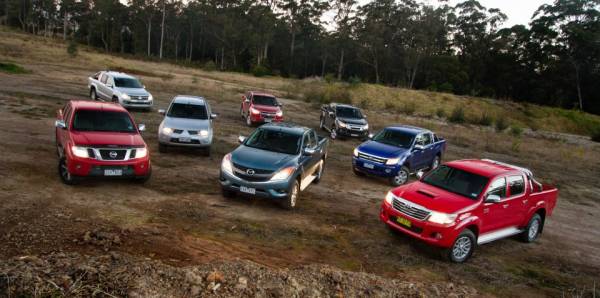
- The Savvy Promise
At Savvy, our mission is to empower you to make informed financial choices. While we maintain stringent editorial standards, this article may include mentions of products offered by our partners. Here’s how we generate income.
Purchasing a car involves more than just selecting the make and model. It often entails navigating a plethora of value-added extras designed to enhance your driving experience. But are these extras truly worth the investment? In this guide, we'll explore the world of value-added extras, examining their benefits, considerations and strategies for maximising their value.
What are value-added extras?
Value-added extras on a car refer to additional features or accessories that are not essential for the basic functioning of the vehicle but are included to enhance its comfort, convenience, safety or aesthetic appeal. These extras can vary widely depending on the make and model of the car, as well as the preferences of the buyer.
Some common examples of value-added extras include:
- Advanced safety features such as adaptive cruise control, lane departure warning, blind-spot monitoring and autonomous emergency braking.
- Infotainment systems with touchscreen displays, navigation systems, smartphone integration (such as Apple CarPlay and Android Auto) and premium sound systems.
- Comfort features like heated and ventilated seats, dual-zone climate control, power-adjustable seats with memory settings and ambient lighting.
- Convenience features such as keyless entry and ignition, automatic parking assist and wireless charging pads for smartphones.
- Exterior enhancements like upgraded alloy wheels, panoramic sunroof, LED headlights and power-folding side mirrors.
- Interior upgrades such as leather upholstery, wood or aluminium trim accents and customisable interior lighting options.
Is it worth buying value-added extras?
Whether value-added extras are worth it depends on several factors. Here are some considerations to help you decide:
- Budget: value-added extras can significantly increase the price of a car – and with it loan repayments and car insurance costs – so it's essential to consider whether the additional cost fits within your budget. Evaluate whether the benefits of the extras justify the higher price tag.
- Resale value: some value-added extras may increase the resale value of the car, making it more attractive to potential buyers in the future. However, not all extras have the same impact on resale value, so research which features are most desirable in the used car market.
- Utility: consider how you plan to use the car and whether the added features will enhance your driving experience. For example, if you frequently travel long distances, advanced safety features like adaptive cruise control and lane-keeping assist may provide added convenience and safety.
- Personal preference: value-added extras are often a matter of personal preference. If certain features significantly improve your comfort, convenience, or enjoyment of the vehicle, they may be worth the investment for you.
- Long-term ownership: ff you plan to keep the car for several years, consider whether the value-added extras will continue to meet your needs over time. Some features may become outdated or less relevant as technology advances, while others may retain their utility and appeal.
Some additional features like autonomous emergency braking (AEB), blind spot monitoring and forward collision warning are crucial for safety and deserve serious consideration. These features have the potential to save lives by alerting drivers to potential hazards and assisting in avoiding accidents.
How can I get the best value out of my added extras?
To get the best value out of your added extras on your car, consider the following strategies:
- Do your research: before investing in any added extras, conduct thorough research to understand the available options, compare prices and read reviews from other users. This can help you make informed decisions and avoid overpaying for accessories that may not offer significant value.
- Choose high-quality, durable accessories: opt for accessories and add-ons that are known for their longevity and reliability. While they may be initially more expensive, they can offer better value over time by requiring fewer repairs or replacements.
- Prioritise functionality: focus on adding features that serve practical purposes and enhance the functionality of your vehicle. Whether it's safety upgrades, convenience features or technology enhancements, prioritise options that align with your needs and usage patterns.
- Proper installation and maintenance: ensure that the added extras are installed correctly by professionals to prevent any issues or damage to your vehicle. Additionally, maintain the accessories regularly according to the manufacturer's recommendations to prolong their lifespan and functionality.
- Negotiate when purchasing: when buying the added extras from dealerships or aftermarket shops, don't hesitate to negotiate the price. You may be able to secure discounts or package deals that offer better value for money. Be prepared to walk away if the price doesn't align with the perceived value of the accessories.
Do value-added extras have to come from the dealership?
While dealerships can showcase a tempting array of value-added extras when you buy your car, there are alternatives:
Aftersales extras: dealerships sometimes offer the option to add value-added extras after your initial car purchase. This can be useful if you weren't sure about specific features upfront or prefer to spread the cost. However, these might be pricier compared to getting them included at the time of purchase.
Aftermarket alternatives: the aftermarket industry thrives on providing parts and accessories that can match dealer-installed value-added extras. This can be a budget-friendly option, especially for features like sunroofs, sound systems or performance upgrades. However, there are some factors to consider:
- Warranty impact: check your car's warranty to understand if aftermarket installations might void certain coverage.
- Prioritise quality: research reputable aftermarket brands known for their quality and reliability. Cutting corners can lead to malfunctioning parts or damage to your car in the long run.
- Seek expert installation: ensure qualified mechanics with experience in aftermarket installations perform the work. Improper installation can create safety hazards or functionality issues.
Value-added extras can offer significant benefits and enhance the overall car ownership experience. However, whether they are worth it ultimately depends on your individual needs, priorities and budget. With careful planning and informed decision-making, you can navigate the world of value-added extras with confidence and drive away in a car that truly enhances your driving experience.
If you’re looking for a car loan, Savvy can help. We’re partnered with more than 40 of Australia’s most trusted lenders, offering hundreds of different car loan options. Get in touch today to begin your journey with us!
Did you find this page helpful?
This guide provides general information and does not consider your individual needs, finances or objectives. We do not make any recommendation or suggestion about which product is best for you based on your specific situation and we do not compare all companies in the market, or all products offered by all companies. It’s always important to consider whether professional financial, legal or taxation advice is appropriate for you before choosing or purchasing a financial product.
The content on our website is produced by experts in the field of finance and reviewed as part of our editorial guidelines. We endeavour to keep all information across our site updated with accurate information.
Approval for car loans is always subject to our lender’s terms, conditions and qualification criteria. Lenders will undertake a credit check in line with responsible lending obligations to help determine whether you’re in a position to take on the loan you’re applying for.
The interest rate, comparison rate, fees and monthly repayments will depend on factors specific to your profile, such as your financial situation, as well others, such as the loan’s size and your chosen repayment term. Costs such as broker fees, redraw fees or early repayment fees, and cost savings such as fee waivers, aren’t included in the comparison rate but may influence the cost of the loan. Different terms, fees or other loan amounts may result in a different comparison rate.









